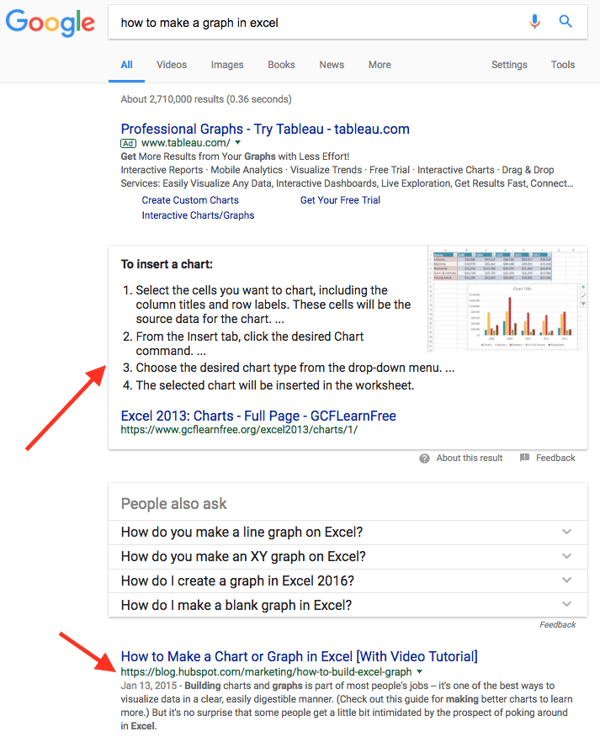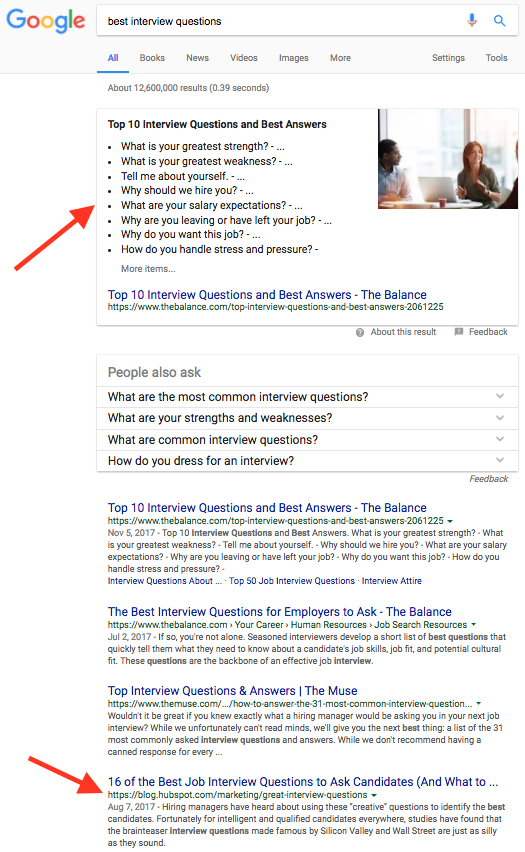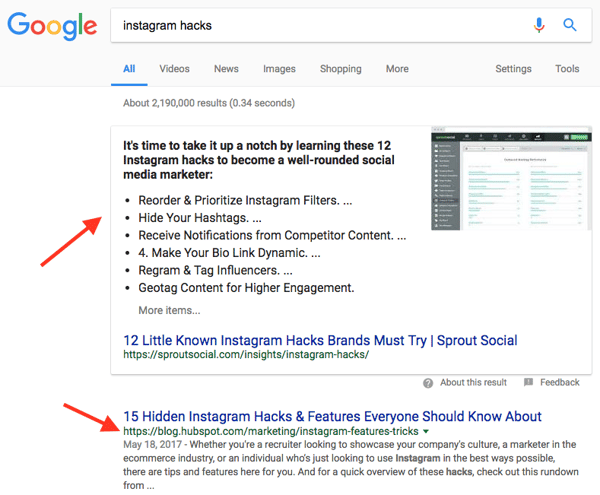The HubSpot Marketing Blog has been around since 2006.
Think about that for a moment. It's been 11 years -- with is plenty of time for successes, failures, changes, and growth. And within that tradition, the Marketing Blog has been no exception.
The Marketing Blog has been a key part of HubSpot’s inbound business. The more posts we published, the larger our audience grew. In 2014, we celebrated reaching 1.5 million views a month. And now, we take pride in our 4.5 million monthly visits.
But then, earlier this year, we noticed that our traffic was falling flat. Then, it declined. In such a short period of time, we had gone from impressive growth to stagnation -- and what's worse, we couldn't figure out why.
Sound familiar?
We have an answer -- but the news isn't exactly, well, good. As it turns out, Google is likely eating your blog traffic -- specifically, its featured snippets.
Here's how we found out.
What Is Google's Featured Snippet?
A featured snippet is a concise response to a Google search query. It's displayed on top of the general results, and also includes the page's publication date, title, and URL.
How We Discovered What Happened
While we spent several months trying to figure out what was going on with our traffic, for the purposes of this post, we'll be focusing on the data we collected that led to our discovery of featured snippets eating blog traffic. To read about the full methodology, visit our research report.
When we looked at the existing data available on this matter, we discovered that, at the root of the issue was that search is simply changing. The number of featured snippets on search engine results pages (SERPs) has grown 328% since summer 2015. On top of that, just under one-third of Google searches now returns a featured snippet.
That may not sound like a huge amount, but when you also consider that, according to Moz, almost half of today's searches result in zero clicks, it indicates that people might be getting the answers they need directly on the SERP -- no page visits required.
In other words, the trends indicated that we were likely losing traffic to featured snippets, whether that snippet received any clicks or not.
What That Means
To put that into context, consider that on SERPs with no featured snippet, we found that the first result can expect to bring in about 33% of the total clicks. The second result accounts for 18%, and the rest, 11% or under.
But we couldn't just take their word for it. We had a deeper look to see if this was, in fact, happening with our own blog posts, highlighting a few that particularly stood out to us.
With a featured snippet, position #1 is, well, a losing result. That's because the featured snippet gets such a high ratio of clicks -- about 50%, versus 33% -- decreasing clicks on the remaining results below it to the point that some of the top 10 become nearly obsolete.
So, yeah -- with featured snippets appearing on a third of all Google SERPs, there's a good chance that they're eating your traffic.
We suspected that might be the case with a few of our own blog posts, and picked out three examples for which our page rank on the SERP didn't fluctuate significantly year-over-year -- in fact, in some cases, it remained in position #1 -- but we didn't capture the featured snippet for the highest-volume queries or keywords.
Here's how much the raw traffic on those posts decreased.
1. "How to Make a Chart or Graph in Excel"
Query: "how to make a graph in excel"
Monthly search volume: over 8,000
How we appeared in the SERP: Position #1 -- but didn't capture the featured snippet
The result: 38% decrease in visits from 2016 to 2017

2. "16 of the Best Job Interview Questions to Ask Candidates"
Query: "best interview questions"
Monthly search volume: over 9,000
How we appeared in the SERP: Position #4 -- didn't capture the featured snippet
The result: 35% decrease in visits from 2016 to 2017

3. "15 Hidden Instagram Hacks and Features"
Query: "instagram hacks"
Monthly search volume: over 1,000
How we appeared in the SERP: Position #1 -- but didn't capture the featured snippet
The result: 24% decrease in visits from 2016 to 2017

It boils down to the click-through-rate (CTR) from the SERP. Featured snippets were the primary reason we’ve seen our blog traffic flatten this year -- even though we ranked well, someone else accounted for half of the clicks, ultimately bringing down our raw traffic.
What to Do About the Featured Snippet
Moving forward, there are some things that can be done to fight these changes. Here are the two primary ones we're testing.
1. Capturing the featured snippet.
We're optimizing existing posts that are currently not capturing the featured snippet, and creating new posts with the featured snippet -- as well as other search features -- in mind.
2. Finding the green space.
Snippets are not going away -- and as long as they're around, they'll continue to eat blog traffic -- sometimes, despite your best efforts. So even with optimization, we won’t ever completely replenish the traffic we lost. To counter that, we’ll work to identify subject matter gaps that created content and clusters in new topic areas where our audience is seeking answers.
... for now, at least. What's your plan? Feel free to weigh in on Twitter, or let us know if you have a question about it.
No comments:
Post a Comment